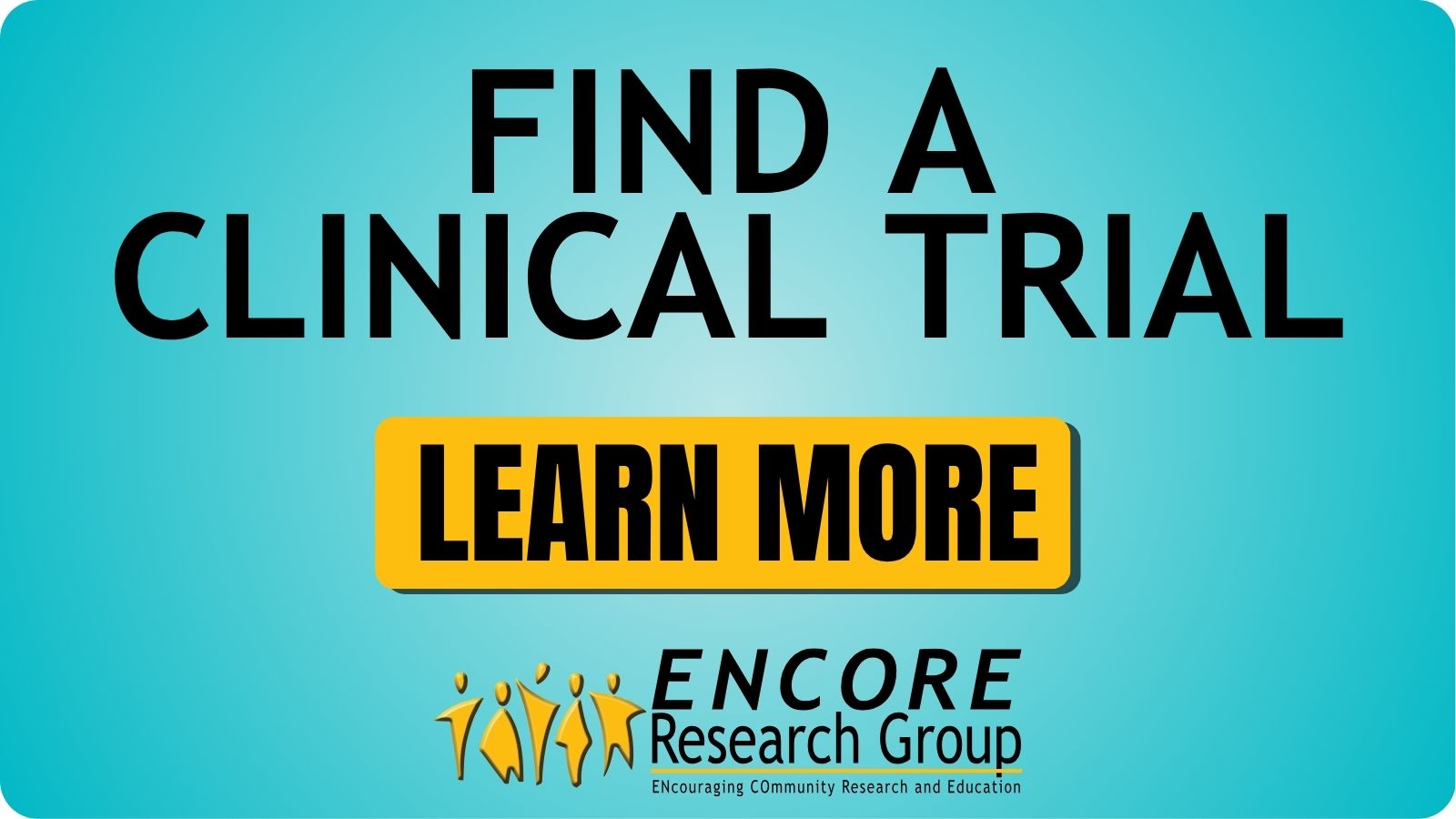Single-Pill Solution Could Reduce Cholesterol by 80%

Audio
Cardiologist Dr. Michael Koren joins Kevin Geddings to discuss progress in the world of cholesterol management. Dr. Koren explains the importance of getting cholesterol, especially LDL cholesterol, under control and the potential benefits to heart attack and stroke risk. They discuss some of the problems with current therapies; they are highly effective, but can introduce burdens to patients with the back-and-forth for multiple medications. Dr. Koren then reveals new medications being studied, which may combine multiple cholesterol medications into a single pill, reducing barriers and potentially improving outcomes.
Transcripts
Transcript Generated by AI.
Announcer: 0:00
Welcome to the MedEvidence! Monday Minute Radio Show hosted by Kevin Gettings of WSOS St Augustine Radio and powered by Encore Research Group. Each Monday morning, dr Michael Koren calls in to bring you the latest medical updates with insightful discussions. MedEvidence! is where we help you navigate the real truth behind medical research, with both a clinical and research perspective. So sit back, relax and get ready to learn about The Truth Behind The Data in medicine and healthcare. This is MedEvidence!
Kevin Geddings, WSOS: 0:30
We are joined live on the studio line by Dr. Michael Koren. He's a big part of our family here at WSOS. He's a medical doctor, cardiologist, research scientist and we appreciate him taking time out of his day. And, for those of you that are dealing with cholesterol issues, some of us are at different stages of that issue, but there may be some exciting news on the horizon. Right, Dr. Koren.
Dr. Michael Koren: 0:52
There is Good morning, Kevin, thanks for having me, as usual and let's talk a little bit today about getting your cholesterol down. So we all know that lower is better. When we treat cholesterol, and particularly we treat something called LDL cholesterol or the bad cholesterol, which is a lipoprotein, meaning a combination of a protein and a fat, we know that people that have had a heart attack or a stroke should have their LDL cholesterol way below 70, in fact, ideally below 50. And people who have risk factors for heart disease should certainly be in the range of 70 to 100. Unfortunately, a lot of people require more than one medication to get there.
Dr. Michael Koren: 1:36
So the standard treatment is a statin drug. You've heard of them Lipitor, Zocor, Crestor. These drugs are now generic, they're inexpensive, they work well. They get your LDL down to maybe about half of what it was previously, sometimes only about 40%, but sometimes people have side effects related to the statin so they can't take them at the full dose.
Dr. Michael Koren: 1:58
Then we have this other class of drugs that are called PCSK9 inhibitors, and these drugs are now injectable drugs that will lower your cholesterol, particularly your LDL, by 50 to 60% on top of what a statin drug does. So in combination, this connection between the PCSK9 drugs and the statin drugs is highly effective and gets people down maybe 70% or 80% when using combination. But unfortunately this is where some of the old-school medicine concepts have kind of not exactly worked, as we have transferred to a new era where we're doing things electronically. So back in the old days I know you recall this you went to your doctor. Your doctor gave you a piece of paper that told you what to do. You brought that to the pharmacy and you got your medicine.
Kevin Geddings, WSOS: 2:50
Right.
Dr. Michael Koren: 2:51
And nowadays, you know, all this is done electronically and what we're seeing is, instead of people coming back in three months with their new prescription especially their fancy usually expensive injectable drug we're seeing that they come back and they're really not where they should be in terms of their LDL cholesterol.
Dr. Michael Koren: 3:11
So this got everybody thinking, well, how are we going to make this better?
Dr. Michael Koren: 3:14
Well, one of the ways to make this better is eventually having a single pill that will combine a statin with a PCSK9 drug, and that single pill could lower your cholesterol by 70 or 80% from the get-go.
Dr. Michael Koren: 3:29
And imagine if we can do that in the old school way where we're actually just giving this pill to somebody after they're diagnosed with high cholesterol in our offices and they get started immediately, rather than having to go through sort of the electronic pre-approval rigmarole. So, as an important step towards this end, I'm making a fairly large presentation at the American College of Cardiology meeting next week in Chicago, talking about a new product that we work with in development in northeast Florida that can help people achieve just what I said. So it's a pill that can be used in combination with a statin that will get people to a cholesterol level of 70 or 80 percent lower than where they started. And imagine if we're able to do this in a way so that people don't have to go through the rigmarole of going through preauthorizations, et cetera, et cetera. Now again, this is just the first step in the whole process, but this shows you what we do in research and people can sort of access this process way before it's approved by the FDA by being part of our research studies.
Kevin Geddings, WSOS: 4:35
Yeah, pretty exciting stuff. So if folks are listening driving around this morning, Dr. Koren and they have had an issue with cholesterol, whether they're currently maintaining with maybe a regular dose of Lipitor or something else, something generic, who are the folks that should be really interested in this development? I guess it would be a degree of cholesterol challenge.
Dr. Michael Koren: 4:56
Yeah, anybody who has been told that their cholesterol is not controlled, people who want to get very aggressive at controlling this risk factor and, by the way, controlling your LDL cholesterol is the risk factor mechanism that has been proven over and over and over again to result in f ewer heart attacks and strokes. So that's what we just say lower is better. And that's a simple message that helps people understand that getting that LDL cholesterol down to below 50, if you've had a heart attack or stroke, or between 70 and 100, if you're just trying to prevent a heart attack and stroke is a really important message and, as part of the clinical research process, we can help people achieve those goals.
Kevin Geddings, WSOS: 5:37
Okay, Folks listening and they've been told that their cholesterol needs to be better controlled or lowered. There are opportunities, obviously, for them to participate in leading clinical research right here in St. John's County in Northeast Florida, right.
Dr. Michael Koren: 5:51
Absolutely. We have a number of studies that are looking at actually different products to achieve this goal under different circumstances. Some apply to patients with diabetes, Some of them apply to patients who have had a heart attack before or a stroke before, and some of them apply to people that are without previous medical history but that still want to get their LDL cholesterol way down. So we have different programs for different people and we're more than happy to look at each of the people that may be listening to our conversation and finding out if there's a role for them in one of the clinical trials that we're currently conducting.
Kevin Geddings, WSOS: 6:29
Super easy to learn more and to get involved, and there's no high pressure in this just a nice casual conversation to figure out if you want to do this, if you might be eligible.
Kevin Geddings, WSOS: 6:39
A couple of ways you can connect with, of course, Dr. Koren and his great team here locally. Go to EncoreDocs. com. That's E-N-C-O-R-E. Encoredocs. com. You can also call their office here locally, 904-730-0166. I'll give you that number again. You can punch it into your cell phone, 904-730-0166. And of course they have offices right here in St. Augustine and St. John's County, next to UF Flagler Hospital in the Whetstone Building. And, Dr. Koren, before I let you go, definitely want to do a shout out for a great website you're very involved in, with wonderful content, easy to use MedEvidence. com. Explain to our listeners what that website's all about.
Dr. Michael Koren: 7:27
That's our platform for people to understand The Truth Behind The Data, so people are giving me really positive feedback about it. It's actually very gratifying to hear people say hey I used to.
Dr. Michael Koren: 7:44
Google things and I wasn't clear which way I should go, since when I Googled things I saw two completely different approaches to my problem. But with MedEvidence people are getting a more comprehensive look through a discussion between two knowledgeable physicians and with that people can make their own decision based on their individual circumstances and based on actually having the data and having doctors explain why there's not always one right answer or another, but in fact there's a right answer for each individual based on their individual circumstances.
Kevin Geddings, WSOS: 8:17
Yeah, there's great information that's available in a variety of formats, you know, so you can watch short videos. We have podcasts. It's good information and you can trust it, unlike what you're going to get if you just Google a health topic or you just go on Facebook or, you know, see something on Instagram. So we highly encourage you to once again take a look at that website.
Kevin Geddings, WSOS: 8:36
Share with others too who are interested in health information. Medevidence. com. That's MedEvidence. com. Dr. Koren, we appreciate you taking time out today. We hope you have a good rest of the day.
Dr. Michael Koren: 8:47
I appreciate it Always good talking to you.
Announcer: 8:50
Kevin, thanks for joining the MedEvidence! podcast. To learn more, head over to MedEvidence. com or subscribe to our podcast on your favorite podcast platform.



